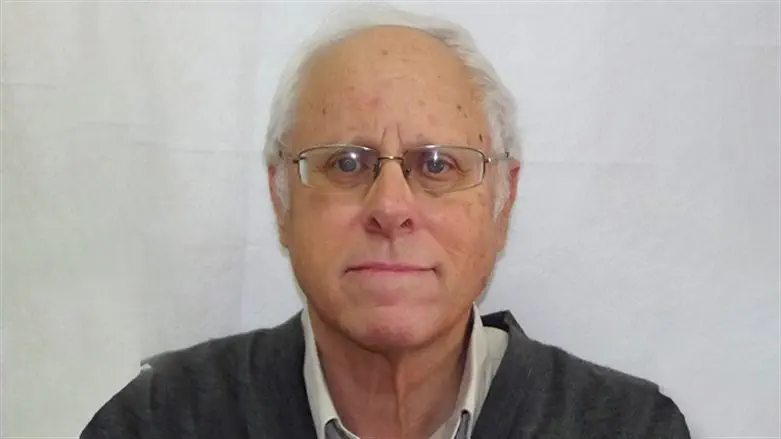
1
Israelis are going to the polls on November 1, the fifth time since April 2019. Five elections in three and a half years is a record for political instability. New parties appear, some split and some disappeared.
No party in the country's history has ever won a 61-seat majority of the 120 Knesset seats to form a politically coherent government, without requiring coalition partners. Ten is the average number of parties elected to parliament (13 in 2021!).
The present and outgoing government began with a razor-thin 61-seat majority composed of Left, Right, and Center, initially cobbled together by Naphtali Bennett as prime minister, when his right-wing Yamina party garnered just seven Knesset seats. Likud, the largest party, won 30, but through a combination of irrepressible ambition and a talent for manipulation, Bennett and his partners circumvented traditional norms of parliamentary government and the will of the majority of Israelis. They took a circuitous path to power that excluded Likud and denied Netanyahu the premiership.
This peculiar scenario was as unconventional as was the addition for the first time of an anti-Zionist Islamist Arab party, Ra'am, to the coalition.
A years-long anti-Netanyahu campaign crusade – "Just Not Bibi" – has reverberated in Leftist/Centrist circles with repetition and revulsion displayed by them in the public arena. Netanyahu, strong at the polls, became the nemesis of the Left. Along the way, packs of enemies surfaced because of suspicions and charges of corruption directed his way; his trial is in process and without end.
Within the nationalist camp and within Likud ranks, the opposition to Netanyahu also smeared his reputation, paving the way for Gideon Sa’ar, Avigdor Liberman, and Naphtali Bennett, stymied in their political advance, to bolt the nationalist camp, join with Center and Left parties, and set up a coalition in 2021 without Likud. Once staunch Likudniks, they established their own parties and shifted leftward. These maverick politicians collaborated with Netanyahu's rivals and changed the political landscape in a way as never before in Israel's political history.
Add to these events the fact that the present two most senior ministers – new caretaker Prime Minister Yair Lapid and Minister of Defense Benny Gantz – cooperate of necessity in decision-making regarding major political and strategic issues - while competing as party leaders of Yesh Atid, and Blue and White, respectively, in the upcoming elections. This symbiotic relationship between political rivals is an oxymoronic political marriage of convenience.
The politics of Israel are confusing, full of surprises, and muddied by verbal rancor. A typical Knesset session, always with vigorous debate, is marred when the Speaker expels parliamentarians from the plenary due to harassing and screaming at the Member of Knesset speaking – or trying to speak amid the commotion - at the podium.
2
It is a commonplace political axiom that the Labor socialist movement led by David Ben-Gurion founded the state of Israel. With this historic narrative embedded in the consciousness of the people, the controversies and conflicts with Jabotinsky's Revisionist camp and its subsequent Likud offspring led to the marginalization of Menachem Begin and the nationalist Right. Then, with the ballots tallied in the May 17, 1977 general elections, the Left/Labor camp was shocked to learn that their Likud rival, after decades in the political wilderness, had become the people's choice. "The people have erred" one Labor stalwart bemoaned, questioning the legitimacy of the democratic choice, while the sensation that the world had been turned upside down catalyzed a barrage of slurs that has continued until today against rightist voters.
Israel 'belongs' to the Left as the progressive, democratic, egalitarian camp opine. This "enlightened elite," a term used by former Chief Justice Aharon Barak, has dominated the academic, cultural, media, judicial, and even security sectors for decades. Leftist hegemony over the levers of power and influence is a sociological pattern, but not a political reality. Likud's extensive popular support and electoral clout frustrated the Left from taking power at the ballot box; thus in 2021 it adroitly joined with renegade rightists and traditional centrists to design the Bennett-Lapid coalition, and put Likud out in the political cold.
The survival of such a heterogeneous government for a year-and-a-half testifies to the political glue provided by the callous campaign against Netanyahu.
3
Approaching the elections, Israel is embroiled in political enmity that serves as the platform for a culture war of exceptional gravity for the future of the country. The Center/Left, with Yair Lapid its noteworthy representative, along with members from Labor, Meretz, and Blue and White (renamed the State Camp, a literal translation from the Hebrew Machane Leumi which the party itself translated inaccurately as National Unity) symbolizes secularism, gender politics, and multi-culturalism. The Left calls for a 'normal state' without Zionist passion. Leftist personalities – like Labor Party leader Merav Michaeli and Zahava Galon heading Meretz – seem comfortable with the seemingly innocuous formula of Israel as a 'state of its citizens', with equality for Jews and Arabs in a de facto bi-national state.
Some issues that seem trivial and consensual from a Western perspective are highly contentious in Israel, like supporting gay parades and public transportation on the Sabbath. The Left-leaning camp advocates a Palestinian state as an Israeli security choice (incredibly so) as Lapid declared in his address at the UN General Assembly this September, also for limiting Jewish settlement in Judea and Samaria, and demanding military restraint in response to Palestinian Arab riots and violence.
When Lapid became prime minister in June – this based on the rotation agreement with Bennett – he paid a reverential visit to the Yad Vashem Holocaust Memorial; his father was a Holocaust survivor. When Netanyahu took the reins of power in other instances, he went to the Western Wall. Lapid looked at Israel through the prism of recent Jewish tragedy in Europe, Bibi through the prism of ancient Jewish roots in the homeland.
The world-view of the nationalist Likud-led camp, with a prominent role for the Religious Zionists, rests on history and tradition, with faith in the modern Jewish Return. Netanyahu promoted the 2018 Law of Israel as The Nation-State of the Jewish People. While the Left shies away from nationalism as fraught with extremism and alienating Arab citizens, the Right is proud of its political badge as the nationalist camp. Central to the Likud agenda is opposition to a Palestinian state as an existential threat, and support for the settlement enterprise in Judea and Samaria.
4
Israel faces several weighty challenges that demand resolute government policy. The election campaign of the major parties has, however, not excelled in proposing solutions. The politicians propose themselves more than ideas or policy programs.
One severe challenge in the domestic domain is the breakdown of security in the southern Negev with Bedouin lawlessness and violence striking Jews as targets and victims. Traveling on the roads has become hazardous. Another is intra-Arab violence in the Galilee and its environs that took 126 lives in 2021 and 88 so far in 2022. In Jerusalem, tensions often run high on the Temple Mount and the al-Aqsa mosque; Arabs have attacked and injured Jews in the Shimon Hatzadik/Sheikh Jarrah neighborhood; and a wave of Palestinian Arab insurrection and terrorism exploded in recent weeks in Samaria. Soldiers have been killed, many Jews injured by rock-throwing Arab mobs.
Jewish – Arab contradictions and clashes top the national political list of issues in this election season.
5
Ambition is a key ingredient in the political métier, and in Israel's case a highly prominent one. Integrity is valued and admired, and sometimes discernible. The crowded political field is full of diverse players: Netanyahu, Lapid, and Gantz; Smotrich & Ben-Gvir in the religious rightist column; haredi non-Zionist politicians in Shas and the United Torah Judaism; two Leftist lists and three anti-Zionist Arab parties. We see here a pitiful display of factionalism and opportunism at their worst.
The Jewish leaders of Israel have proven unable or unwilling to reconcile and unite for the higher purpose of defending Israel. Parochial politics are the bane of Israel's national renaissance. Voting surveys forecast a draw between the Netanyahu bloc (nationalist, religious, and haredi) and the Lapid bloc (center-leftist-Arab). Unknown is whether these blocs will remain intact after the ballot count and the subsequent arduous process to try to form a majority government. After the scandalous Bennett-Lapid political stunt, no coalition scenario can be discounted.
Meanwhile, the pettiness of Israeli politics and the vanity of small people, except for a very few, entrusted with a historic mission threaten to dwarf and darken the unparalleled drama of Israel's rebirth, the fulfillment of biblical prophecy, the dynamism of Zionism, the unprecedented triumph of the Jewish people, and the astounding religious spirit and national genius that bind remembrance to the chariot of action.
It behooves the present generation of Israeli leaders to transcend personal or passing concerns to honor the sacred trust for the Jewish people.
Dr. Mordechai Nisan is a retired lecturer in Middle East Studies at the Hebrew University of Jerusalem. Among his books is The Conscience of Lebanon: A Political Biography of Etienne Sakr (Abu-Arz). His most recent books are Only Israel West of the River: The Jewish State and the Palestinian Question, and The Crack-Up of the Israeli Left, available at Amazon.com.
